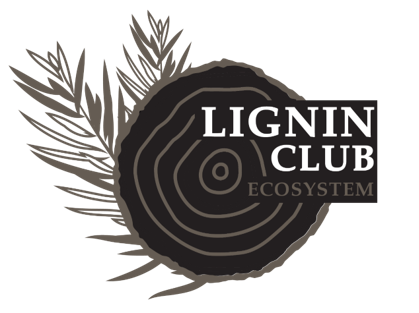

Partnership
Paving the way for sustainable innovation
At LignEasy, our pursuit of sustainable innovation is strengthened by strategic partnerships with key players in the fields of research, development, and sustainable initiatives.
We are recipients of funding from the EIC Accelerator, a flagship program within Horizon Europe, the European Union’s primary funding initiative for research and innovation. Aligned with Horizon’s mission to address climate change, achieve the UN’s Sustainable Development Goals, and enhance the EU’s competitiveness and growth, this partnership has propelled LignEasy to the forefront of innovative solutions.
We have set up a strong collaboration with the Research Institute of Sweden (RISE). Our ongoing pilot operations are taking place at LignoCity, RISE’s specialized testbed dedicated to lignin research, situated in Bäckhammar, Sweden.
In our unwavering pursuit of excellence, we have forged a collaboration with SciTech-Service Oy, a distinguished bio-refining consulting company boasting over 40 years of expertise in providing outsourced technology development. This strategic partnership plays a pivotal role in harnessing their extensive knowledge to drive the development and innovation of sustainable solutions for the future.
We are proactively seeking partnerships with organizations that share our dedication to revolutionizing industries, addressing climate change, and fostering a more sustainable world. If you are interested in collaboration, kindly get in touch with us. Together, with the backing of visionary organizations, we aspire to pioneer the transformation of lignin into a valuable resource for the future.
Public summary of the EIC project
Lignin, a structural component in plant cell walls, becomes a waste product during wood processing into pulp. The current method to extract lignin involves heavy chemicals, and the end-product is not easily suitable for further processing. Consequently, the pulp industry often burns lignin for energy, even though it is a rather low-grade fuel.
LignEasy introduces the first sulfuric acid-free, low-impact lignin recovery system for pulp mills. This patented technology integrates seamlessly into any kraft pulp mill, producing high-quality lignin suitable for various applications without disrupting chemical balance or productivity. Benefits include producing a versatile biomaterial and debottlenecking the pulping process, particularly in older mills, while reducing sodium sulphate dumping and associated costs.
Project Objectives:
- Develop and demonstrate a pilot-scale lignin recovery process, integrated into an active pulp mill.
- Demonstrate several end-use cases for lignin in the chemical industry, including customer testing.
- Design a full-scale plant (50,000 tons/year) based on pilot results and initiate discussions for a flagship plant location.
Work Performed and Achievements:
- Small-scale testing at in-house laboratory, defining basic process parameters.
- Market study identifying promising applications in proven end-uses, phenolic resins and polyurethane.
- Agreement with RISE, Sweden, for pilot testing.
- Successful small pilot-scale testing, confirming process parameters defined in the lab.
- Installation and commissioning of a pilot plant with a capacity of 1 ton of lignin per day.
- Positive results in testing lignin for plastics, cardboard, and bitumen.
Progress and Expected Results: LignEasy’s technology advances beyond current methods by using advanced filtration instead of acid-based systems, reducing sulfur exposure and odor. The lignin produced is versatile, available in liquid or powder form, and suitable for various applications. The project aims to scale up production quickly up to 4000 tons/year, addressing market demand for lignin products and obtaining necessary certifications.
Policy Relevancy: LignEasy supports the EU’s green transition goals, Fit for 55, the European Green Deal, and others. Using our lignin to replace phenol and polyol could prevent about 190,000 tons of CO2 emissions annually, exceeding our own emissions, contributing to SDG 13: Climate Action.
In co-operation with:



Member of:



